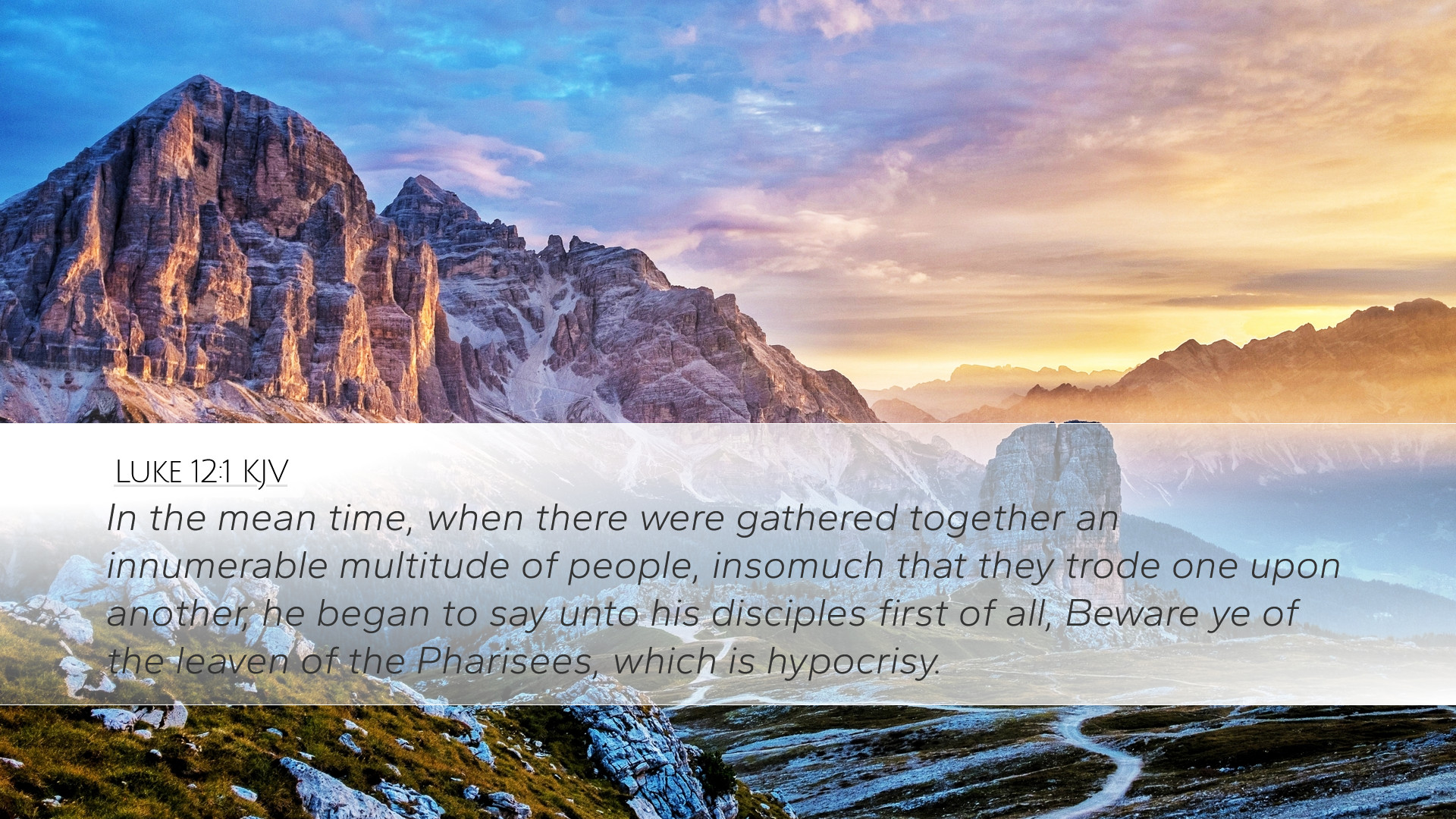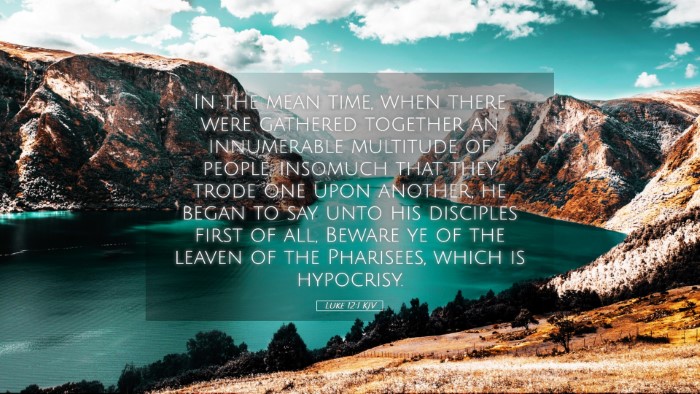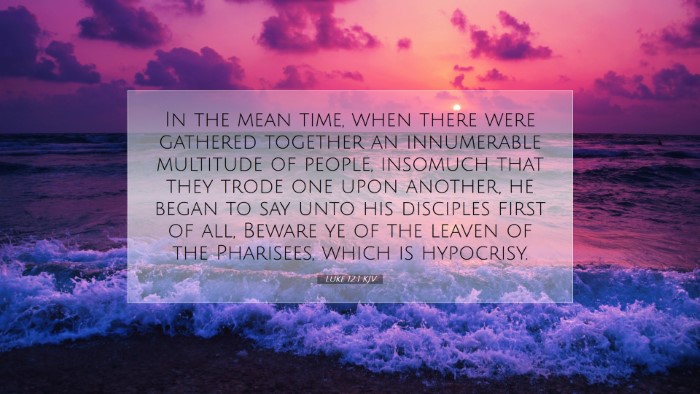Commentary on Luke 12:1
Verse Reference: Luke 12:1 - "In the meantime, when there were gathered together an innumerable multitude of people, insomuch that they trode one upon another, he began to say unto his disciples first of all, Beware ye of the leaven of the Pharisees, which is hypocrisy."
Introduction
This verse offers a significant teaching moment from Jesus amidst the pressing crowds. It addresses His disciples, offering caution against the dangerous influence of hypocrisy, symbolized by the leaven of the Pharisees. The imagery of leaven is profound, suggesting that small impurities can spread rapidly, affecting the entire individual or community.
Contextual Analysis
According to Matthew Henry, the context of this verse is crucial. Jesus is warning His disciples at a time when the multitude is pressing around Him. The contrast between the vast audience and the intimate counsel given to the disciples highlights the importance of discernment in the midst of public opinion versus divine truth.
Albert Barnes emphasizes that this crowd, described as "innumerable," reflects the strong interest in Jesus's ministry. However, the lesson directed towards the disciples implies a shift from popularity to spiritual authenticity.
The Meaning of "Leaven"
The term "leaven" is a significant metaphor throughout Scripture, often associated with influence and corruption. Adam Clarke notes that in this context, Jesus uses the term to symbolize the corrupting influence of the Pharisees’ teachings and behaviors. The hypocrisy of the Pharisees is particularly dangerous, as it can appear righteous outwardly while being filled with deceit internally.
Matthew Henry further elaborates that the leaven represents not just individual hypocrisy, but a systemic problem within the religious community, warning that it can lead to widespread deception if left unchecked.
Warnings Against Hypocrisy
- Nature of Hypocrisy: Hypocrisy is condemned throughout Jesus' teachings. Albert Barnes notes that it creates a false representation of one's spiritual state, misleading both the individual and others around them.
- Impact on Spiritual Life: Adam Clarke suggests that hypocrisy can prevent true communion with God. Individuals steeped in outward appearances may neglect internal growth and sincere faith.
- Call for Integrity: This passage emphasizes the need for integrity in discipleship. Matthew Henry encourages believers to pursue authenticity, aligning their outer actions with inner beliefs.
Application for Disciples
For contemporary disciples, this warning remains relevant. Adam Clarke encourages a self-examination approach, examining one's motives and actions continually to avoid falling into the snare of hypocrisy.
Matthew Henry calls for an understanding of the seriousness of Jesus' warning. Pastors and spiritual leaders must safeguard their integrity and commitment to authentic faith, ensuring their teachings reflect genuine experiences with Christ rather than mere behavioral modification.
Conclusion
In summarizing Luke 12:1, the insights drawn from historical commentaries underline the continued significance of Jesus’ warning against hypocrisy. Reflecting on the leaven of the Pharisees encourages all followers of Christ to remain vigilant, pursuing truth and integrity in their spiritual life.
As we consider these teachings, let us endeavor to embody the principles of genuine faith, moving beyond the superficial and sinful influences that lead one away from a true relationship with God.


